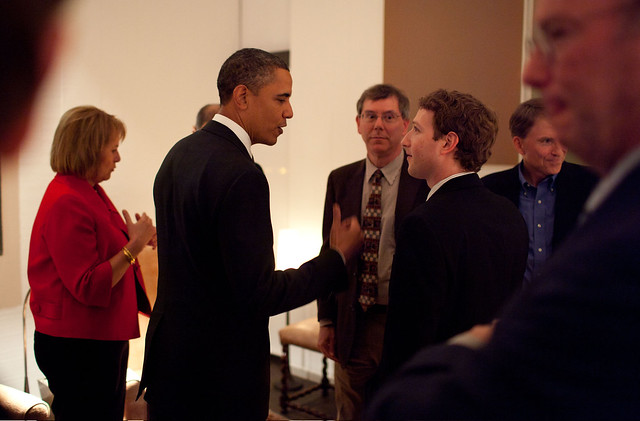Well, it's official. Twitter has declared war on its 3rd party client developers. Ryan Sarver, Platform lead for Twitter posted a message to developers this afternoon outlining Twitter's policy change. Dave Winer reminds us all that he warned us that one day we would wish we had decentralized from Twitter. I thought he was right then, and still do. The problem is it's hard to move the community.
MG Siegler, at Techcrunch, writes:
For much of the past year, the Twitter ecosystem has been in a state of flux. Ever since Twitter bought Tweetie and turned it into their own native iPhone app, third-party developers have been wondering
where this would leave them. Further moves by Twitter into Android, iPad, Mac, Windows Phone,
BlackBerry, and other spaces have only compounded some of this fear. So Twitter has taken some time today in their developer forum to talk a bit about the state of the ecosystem and give some guidance. It’s blunt, but necessary.
Specifically, Platform lead Ryan Sarver has a fairly lengthy outline of Twitter’s line of thinking with regard to third-party clients and services. And while there’s a little bit of dancing around the topic at first, it quickly gets very clear: third-parties probably shouldn’t be creating straight-up Twitter clients any further.
Sarver notes that Twitter views a “consistent user experience” as very important to them. And it’s something they’re going to hold third-party developers to a very high standard to maintain. But they don’t want them to mimic Twitter’s own experience with their native apps in order to do this. They’ve updated the API Terms of Service to reflect all of this.
“Developers have told us that they’d like more guidance from us about the best opportunities to build on Twitter. More specifically, developers ask us if they should build client apps that mimic or reproduce the mainstream Twitter consumer client experience. The answer is no,” Sarver writes very matter-of-factly.
“If you are an existing developer of client apps, you can continue to serve your user base, but we will be holding you to high standards to ensure you do not violate users’ privacy, that you provide consistency in the user experience, and that you rigorously adhere to all areas of our Terms of Service. We have spoken with the major client applications in the Twitter ecosystem about these needs on an ongoing basis, and will continue to ensure a high bar is maintained,” he continues.
Sarver notes that according to Twitter’s own data, some 90 percent of active Twitter users now use official Twitter apps on a monthly basis to access the service.
“We need to move to a less fragmented world, where every user can experience Twitter in a consistent way. This is already happening organically – the number and market share of consumer client apps that are not owned or operated by Twitter has been shrinking,” he writes.
The biggest third-party client in the space is TweetDeck, which was in the process of being acquired by UberMedia when Twitter suspended their apps a few weeks ago for TOS violations. I’ve reached out to Twitter to see where TweetDeck and UberMedia stand now with the new rules.
So where should third-party developers look towards in terms of developing for the ecosystem? Sarver highlights the following areas:
* Publisher tools. Companies such as SocialFlow help publishers optimize how they use Twitter, leading to increased user engagement and the production of the right tweet at the right time.
* Curation. Mass Relevance and Sulia provide services for large media brands to select, display, and stream the most interesting and relevant tweets for a breaking news story, topic or event.
* Realtime data signals. Hundreds of companies use real-time Twitter data as an input into ranking, ad targeting, or other aspects of enhancing their own core products. Klout is an example of a company which has taken this to the next level by using Twitter data to generate reputation scores for individuals. Similarly, Gnip syndicates Twitter data for licensing by third parties who want to use our real-time corpus for numerous applications (everything from hedge funds to ranking scores).
* Social CRM, entreprise clients, and brand insights. Companies such as HootSuite, CoTweet, Radian6, Seesmic, and Crimson Hexagon help brands, enterprises, and media companies tap into the zeitgeist about their brands on Twitter, and manage relationships with their consumers using Twitter as a medium for interaction.
* Value-added content and vertical experiences. Emerging services like Formspring, Foursquare, Instagram, and Quora have built into Twitter by allowing users to share unique and valuable content to their followers, while, in exchange, the services get broader reach, user acquisition, and traffic.
Sarver highlights Twitter’s “diverse ecosystem” of more than 750,000 registered apps. But that ecosystem definitely just got altered quite a bit today.
I think that Justin Williams, iOS developer of the popular Elements app sums it up nicely: (paraphrased) "Anyone building a product around a platform in which they have no control, should be wary of the platform, especially a platform that is VC funded."
My theory? It's all about the Dickbar.
Twitter to users, "Here, have a Dickbar!"
Users to Twitter, "We don't like the Dickbar! It covers up our timelines!"
Twitter to users, "Okay, we made the Dickbar less sucky!"
Users to Twitter, "But it's still a Dickbar! Fine then, we'll switch to Twitteriffic, Echofon, Tweetdeck, Hibari, etc".
Twitter sees a large amount of people quit using their client. In-your-face trends ad bar plot foiled! Devises new plan...
Twitter to developers, "You can't make clients anymore that don't have our 'user experience' (1)".
(1): 'User Experience' = Dickbar.
Brent Simmons chimes in as well:
Did Twitter just tell client-app developers to stop?
I’m seriously disappointed by this. Not as someone with a Twitter client, but as someone who likes the service and wants my fellow developers to do interesting things.
One of the cool things about Twitter is that the service sparked a bunch of UI innovation on the part of some very talented client-app developers. I want to see that continue. But it’s as if they said: no more. Stop. We’ll take over now.
Craig Hockenberry also makes the good point that the reason third-party Twitter clients are so important to the Twitter ecosystem is that they innovated when Twitter did not.
One question though...did Twitter release this bombshell on the community on a Friday afternoon where they thought that their userbase would be distracted? On the 1st day of SXSW? On the iPad 2 launch day? I can't decide whether I think the existing news stories of the day (earthquake/tsunami, iPad 2, SXSW) will drown out the news or if SXSW will help to amplify it. I'm hoping for amplification. C'mon nerds, gather ye pitchforks and torches.



